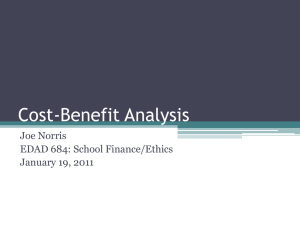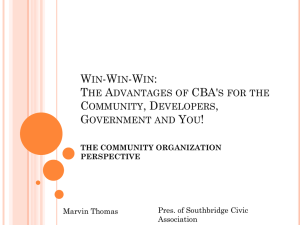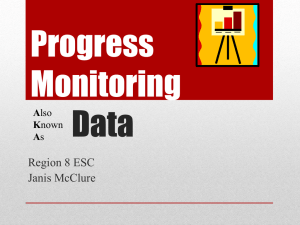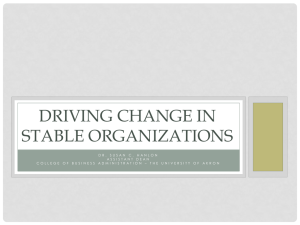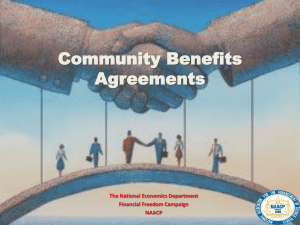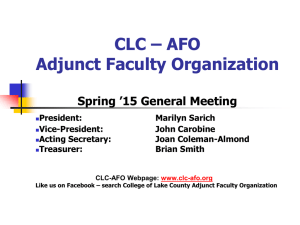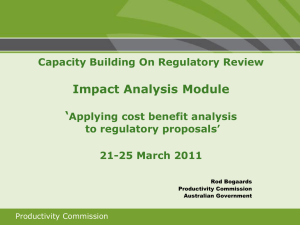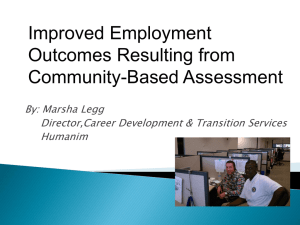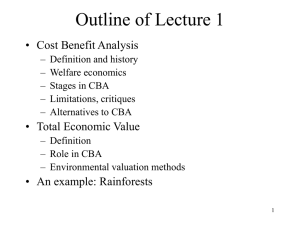CBA Symposium Overview Presentation
advertisement
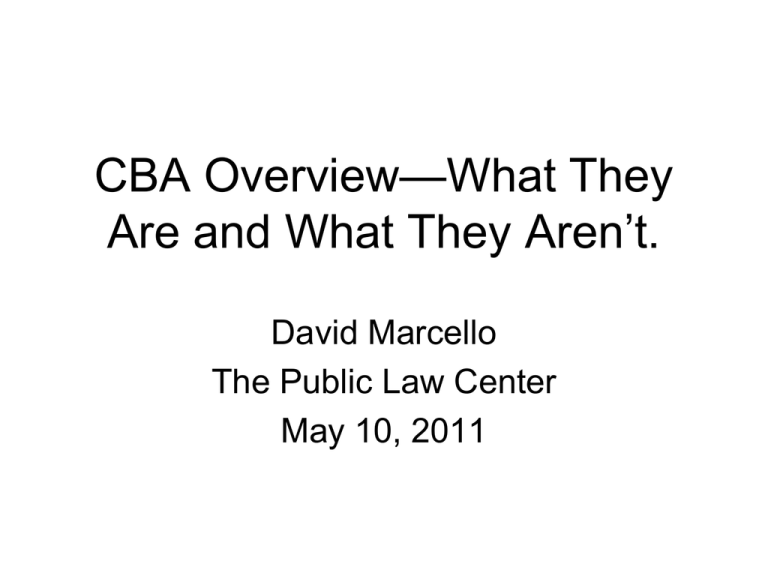
CBA Overview—What They Are and What They Aren’t. David Marcello The Public Law Center May 10, 2011 What is a Community Benefits Agreement (CBA)? • A CBA is an enforceable contract directly negotiated between a developer and a Community Benefits Coalition (CBC). How Do CBA’s Compare to PublicPrivate Partnership Agreements? DEVELOPER Public-Private Partnership Agreement CITY Community Benefits Agreement CBC What do economic development projects need to succeed? • Many projects need “public benefits” or “subsidies” iin the form of: – Zoning approval – Favorable financing – Infrastructure improvements • To get approval for these public benefits, project developers often need public (community) support. What do developers get out of a Community Benefits Agreement? • The Community Benefits Coalition agrees to support the project with public testimony and written statements. • Community support reduces risk for developers by uniting city government and community groups behind the project. • Developers more reliably get needed public subsidies or government approvals. Members of the CBC negotiating team seek Community Benefits. • The CBC negotiating team represents the interests of the entire community affected by a proposed development. • No member of the CBC negotiating team may receive a direct benefit from the CBA. • “Transparency” is the key to success of the CBA process: No backroom deals. • TPLC Website has Operating Principles. What types of benefits have CBA’s provided to communities? • Local and Minority Hiring Commitments • A Living Wage and Benefits • Educational Partnerships Between Developers and Community Schools • Physical Improvements to Open Spaces, Parks, and Playgrounds • Affordable Housing and Rehabilitation • Senior Centers and Child-Care Facilities What’s the economic impact of a “local hiring” commitment? • Conservatively, salaries turn over in our community 3 times. • Without local hiring, the community could lose the economic impact of these salaries in their neighborhood. • Both developers and neighbors benefit from stronger neighborhoods where expensive investments are located. CBA’s: No Answer to “NIMBY” • NIMBY: “Not in my Back Yard” • Interests that are unalterably opposed to a project will not join or sign a CBA, since their overriding goal is to kill the project. • “Community Benefits” are only produced if the proposed project gets built. • CBA’s facilitate development—and benefits for the community: Win-Win. CBA’s: Aren’t “New Taxes” Nor Are They “Tax Breaks” • Additional tax revenues derived from new development bring “benefits” to the larger “community,” but that’s not the “benefit” associated with CBA’s negotiated by CBC. • Tax breaks negotiated in PPP, not CBA. • CBA = Private agreement between Developer and Community Coalition • New taxes or “forgiveness” of tax = Public CBA’s: Not a “CPP” or “NPP” • CBA’s exist independently of formal public participation programs. • Successful CBA’s are no substitute for a CPP or NPP. • We can have successful CBA negotiations without a CPP or NPP. • CPP and NPP are very worthy subjects for discussion at a symposium all their own. CBA’s: Not “inward” looking; focused “outward” on benefits • We’ve always had “internal” negotiations to diminish the project’s adverse impacts. • “External” focus of CBA’s is the new feature—positive contributions to the area outside of the project’s boundaries. • And CBA’s allow neighborhood residents to represent themselves; no need to rely on government to protect their interests. How can city and state government support CBA’s? • Inform community coalitions of proposed developments. • Encourage developers to enter good-faith negotiations with responsible community coalitions. • Respect the negotiating process and honor community coalition’s agreement. • Fold CBA’s into PPP agreements, where appropriate for added enforcement. Why should we support CBA’s? • Equity—It’s only fair that neighborhood residents affected by a project enjoy some benefits from its presence in their area. • Economic Development—Increased earnings by area residents “roll over” into support of local small businesses. • Functionality—Development just works better when parties are on the same page. How do YOU define “Economic Development”? • Recruiting new business. BUT ALSO • Paying good wages and benefits. • Supporting local small businesses. • Giving a hiring preference to high school graduates: Build workforce development into the CBA system. • Sustaining stable neighborhoods. Consider All Options to Rebuild • Post-Katrina, we must consider all options to rebuild our economy and communities. • Community Benefit Agreements are a new solution for community recovery. • Government cannot solve the problem on its own. We must put private sector resources at the center of recovery. • CBA’s create a partnership among public, private sector, and community resources. Community Benefit Agreements • Reduce risk for developers. • Revitalize local businesses by providing a living wage and benefits to area residents. • Create partnerships among developers, city government, and community groups. • Provide benefits to communities directly impacted by proposed developments. • CBA = Innovative Recovery Strategy

